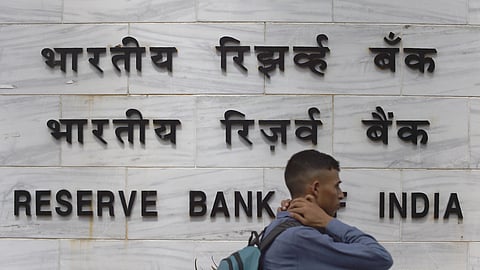

[dropcap]T[/dropcap]HE Supreme Court's recent judgment in three contempt petitions against the Reserve Bank of India (RBI) has hopefully brought closure to blatant defiance of its orders by one of the country's foremost regulatory bodies. Though the court has not taken any action against the RBI, it has given a warning that the continuing defiance of its orders to reveal information would invite its wrath.
The RBI's job is to control and regulate the nation's financial matters. It expects all banks and financial institutions to abide by its regulations and orders but blatantly defies the RTI Act and the Supreme Court of India. It should have realised that by its actions it loses its moral authority.
This story started in November 2011 with an order by the Central Information Commission (CIC) to the RBI to disclose its inspection and audit reports and action taken against managers and directors of cooperative banks which had gone into liquidation. The Commission ordered the information to be disclosed on the grounds that it was not protected from disclosure by the exemptions in Sections 8 and 9 of the RTI act. This was followed by another nine orders directing the central bank to disclose information in the respective appeals (All ten orders were given by the author in his capacity as Chief Information Commissioner). These involved various actions covering a variety of RTI applications seeking accountability and transparency from the central bank. Some sought details of penalties imposed on banks for violations, while others asked for information on defaulters.
While ordering all the information to be disclosed, the Commission noted: "RBI had by its circular DBOD No.BC/CIS/47/20.16.002/94 dated April 23, 1994, directed all banks to send a report on their defaulters, which it would share with all banks and financial institutions, with the following objective:
From a position taken from an RTI standpoint, when it directed banks to make the names of defaulters' public, it had slowly moved to a position where it wanted complete opacity on such matters of violation of laws and rules. The CIC, therefore, lamented "The idea that citizens are not mature enough to understand and will panic and harm their own interests, is repugnant to democracy. The case for transparency is that when Citizens are watching and monitoring Institutions, they are forced to be on their toes, and will continuously improve. It follows that if RBI made mistakes, or there was corruption, citizens should suffer."
The RBI challenged all these decisions and obtained a stay on them in various high courts. These cases were finally decided by the Supreme Court in December 2015 when it upheld all the decisions of the CIC and clearly stated that no interference was called for.
"…it had long since come to our attention that the Public Information Officers (PIO) under the guise of one of the exceptions given under Section 8 of RTI Act have evaded the general public from getting their hands on the rightful information that they are entitled to," the Supreme Court had noted then. While severely criticising the RBI for its unwillingness to share information with citizens, it said: "the Regulatory authorities have intentionally or unintentionally created an in terrorem effect".
Even so, the RBI refused to comply with the order and instead put in place a so-called 'Disclosure Policy' on its website which stated that most information, including that ordered by the Supreme Court, would not be provided. This would have the effect of giving a complete protection to all its officials who refused information. It was a clear declaration that it held the citizen's fundamental right to information and the Supreme Court in contempt. The RBI was effectively saying that it had the right not to obey a judgment of the apex court if it did not agree with it. This will always remain a very unfortunate and distressing event in the history of the RBI.
With its judgment recently on the three contempt petitions, the apex court has given RBI a very hard rap on its knuckles. But it has been considerate by not taking action for the contempt of its order. Perhaps it has considered the fact that three governors were involved in this period. It has, however, warned that "Any further violation will be viewed seriously by the Court".
It is expected that this warning will lead to greater respect for citizens and their fundamental right to information by the RBI. The bank must understand that if they practice greater transparency, it is likely to reduce instances of fraud and defaults. It must understand that citizens are the masters, and this is a government of the people, for the people, of the people.
For improvement and accountability to the citizens, they must follow the basic premise that all information belongs to the people and hence the default mode is to provide information unless it is exempt. It needs to acknowledge that citizens are the best vigilance monitors and informing them is their duty. Perhaps if it had been as transparent as it was in 1994, there would have been some curb on the Nirav Modi and Vijay Mallya and citizens would not have had to pay for the recapitalising of banks.